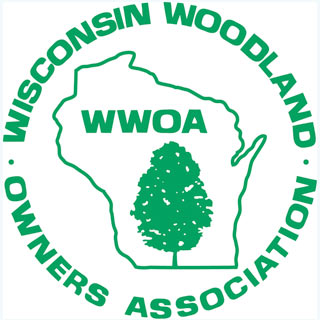The Wisconsin Woodland Owners Association authored the following coalition letter to share information about the Forestry Mill Tax’s 2017-19 budget provisions with Wisconsin’s citizens and legislators.
An Open Letter to Wisconsin citizens and legislators,
Wisconsin forests are at risk in the 2017-19 state budget proposal, which removes the designated stable funding of the Forestry Mill Tax. We strongly oppose the removal of this funding, which supports Wisconsin’s conservation traditions and the state’s second most important economic sector.
“…in 1930 [Wisconsin] exercised for the first time the authority of the 1924 constitutional amendment to levy a tax of one-twentieth of a mill on all taxable property to raise $298,797 for the acquisition, development, and protection of forest areas in the state. This was one of the most important events in Wisconsin forestry because implementation of the mill tax provided a continual source of funding for forestry…” from the book, One Hundred Years of Wisconsin Forestry 1904-2004.
History confirms the legislatures’ past wisdom and leadership in recognizing the need for dedicated funding for Wisconsin’s forests, as demonstrated by the rare act of a referendum to create this constitutional amendment. That forethought and action, along with hard work and use of the current day’s scientific knowledge helped Wisconsin become a leader in the care and management of our forest lands.In the past 87 years, this income has provided a stable and sustained funding source for our forests, created necessary programs, and kept them healthy and productive. From Wisconsin’s late 1800’s landscape of cutover forests and burned fields of tree stumps, our forests have regenerated into 17 million acres of beautiful, healthy, sustainable lands.
The impacts of this amazing recovery cannot be overstated and are visible within our everyday life. We should never take these resources for granted.
The Forestry Mill Tax:
- Has inspired many public and private partners to work together for the good of all of our citizens and the improvement of our natural resources.
- Plants trees in our busiest of cities and across rural landscapes.
- Supports environmental education programs for our school children.
- Provides technical assistance to private woodland owners.
- Maintains state and county forests for a variety of recreational activities and forest products.
- Continues our conservation traditions by providing and improving wildlife habitat, clean air and water.
- Protects rural townships through wildfire detection and control.
- Enhances appealing healthy landscapes and scenic roadways for tourism.
- Provides outdoor recreation opportunities through the Knowles-Nelson Stewardship Program.
Continued funding of the Forestry Mill Tax demonstrates Wisconsin’s ongoing commitment to promote the state’s second most important economic sector. To lessen this commitment implies a disregard for the tens of thousands of jobs, the positive impacts on local economies, and continued wise stewardship of our precious natural resources.
- Our renewable and healthy forests today provide raw materials to sustain approximately 1,300 wood-using companies throughout the state.
- They create more than 64,000 jobs with total wages contributing about $3.4 billion per year to our Wisconsin economy.
- Every job in forestry supports 1.7 additional jobs in our state.
- Wisconsin leads the United States in paper production and wood manufacturing.
- Wisconsin’s forest industry has an output of $24.7 billion in forest products each year.
- The certification of our state, county and private forest lands has allowed Wisconsin’s forest industries to remain competitive during difficult economic times.
Wisconsin forests now provide a tremendous natural, sustainable and harvestable resource, promoting industry, providing jobs, supporting tourism and conservation while most notably benefitting Wisconsin citizens and their quality of life. The sustainability of our forests are unusual compared to many other revenue-generating resources, which are consumed, depleted or mature. The unique attributes and long-term commitments required for sustainable forest management necessitate retaining this special, dedicated funding mechanism.
We, the undersigned, strongly oppose the removal of the Forestry Mill Tax funding in the state budget. We believe the budget proposal to not collect this tax and replace it with General Purpose Revenue for the 2017-19 biennium at a cost of $181 million, followed by an uncertain future, places Wisconsin’s nationally recognized forests and their resulting benefits at great risk.
WI Woodland Owners Association Inc., PO Box 285, Stevens Point, WI 54481 715-346-4798
The Forest Stewards Guild, 612 W. Main Street, Suite 300, Madison, WI 53703 608-286-0240
Partners in Forestry Cooperative, 6063 Baker Lake Road, Conover, WI 54519 715-479-8528
WI Chapter of the Society of American Foresters, 856 N.4th Street, Tomahawk, WI 54487 715-453-3274
WI Wildlife Federation, 1540 W. James St. Suite 500, Columbus, WI 53929 920-623-9975
WI Tree Farm Committee, PO Box 285, Stevens Point, WI 54481 715-252-2001
